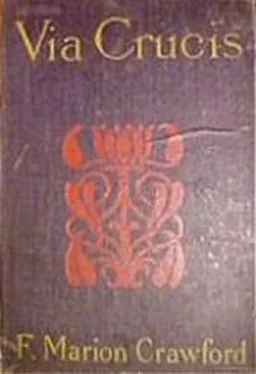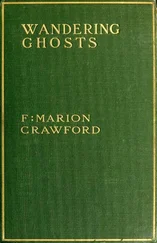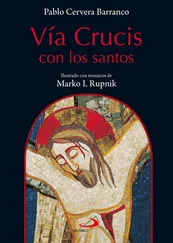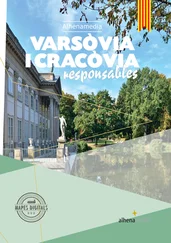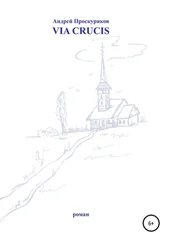F. Crawford - Via Crucis
Здесь есть возможность читать онлайн «F. Crawford - Via Crucis» весь текст электронной книги совершенно бесплатно (целиком полную версию без сокращений). В некоторых случаях можно слушать аудио, скачать через торрент в формате fb2 и присутствует краткое содержание. Жанр: Исторические приключения, на английском языке. Описание произведения, (предисловие) а так же отзывы посетителей доступны на портале библиотеки ЛибКат.
- Название:Via Crucis
- Автор:
- Жанр:
- Год:неизвестен
- ISBN:нет данных
- Рейтинг книги:3 / 5. Голосов: 1
-
Избранное:Добавить в избранное
- Отзывы:
-
Ваша оценка:
- 60
- 1
- 2
- 3
- 4
- 5
Via Crucis: краткое содержание, описание и аннотация
Предлагаем к чтению аннотацию, описание, краткое содержание или предисловие (зависит от того, что написал сам автор книги «Via Crucis»). Если вы не нашли необходимую информацию о книге — напишите в комментариях, мы постараемся отыскать её.
Via Crucis — читать онлайн бесплатно полную книгу (весь текст) целиком
Ниже представлен текст книги, разбитый по страницам. Система сохранения места последней прочитанной страницы, позволяет с удобством читать онлайн бесплатно книгу «Via Crucis», без необходимости каждый раз заново искать на чём Вы остановились. Поставьте закладку, и сможете в любой момент перейти на страницу, на которой закончили чтение.
Интервал:
Закладка:
A great cry went up from all the knights, and then from the people, strong and triumphant, echoing, falling, and rising again.
"God save the Queen! — the Queen that wears the Cross!"
And suddenly every man held up his sword by the sheath, and the great cross-hilts made forests of crosses in the glowing air. But the Queen's three hundred ladies pressed upon her.
"We will not leave you!" they cried. "We will take the Cross with you!"
And they thronged upon Bernard like a flight of doves, holding out white hands for crosses, and more crosses, while he gave as best he could. Also the people and the knights began to tear pieces from their own garments to make the sign, and one great lord took his white mantle and made strips of the fine cloth for his liege vassals and his squires and men; but another took Bernard's white cape from his shoulders and with a sharp dagger made many little crosses of it for the people, who kissed them as holy things when they received them.
In the throng, Gilbert pressed forward to the edge of the platform where the Queen was standing, for he was strong and tall. He touched her mantle softly, and she looked down, and he saw how her face turned white and gentle when she knew him. Being too far below her to take her hand, he took the rich border of her cloak and kissed it, whereat she smiled; but she made a sign to him that he should not try to talk with her in the confusion. Then looking down again, she saw that he had yet no cross. She took one from one of her ladies, and, bending low, tried to fasten it upon his shoulder.
"I thank your Grace," said Gilbert, very gratefully. "Is Beatrix here?" he asked in a low tone.
But, to his wonder, the Queen's brow darkened, and her eyes were suddenly hard; she almost dropped the cross in her hurry to stand upright, nor would she again turn her eyes to look at him.
Chapter XII
In the late dusk of summer Bernard went his way from the place where he had preached, to the presbytery of Saint Mary Magdalen, where he was to lodge that night. The King and Queen walked beside him, their horses led after them by grooms in the royal liveries of white and gold; and all the long procession of knights and nobles, priests and laymen, gentlefolk and churls, men, women, and children, streamed in a motley procession up the road to the village. As they went, the King talked gravely with the holy man, interlarding and lining his sententious speeches with copious though not always correct quotations from the Vulgate. On Bernard's other side Eleanor walked with head erect, one hand upon her belt, one hanging down, her brows slightly drawn together, her face clear white, her burning eyes fixed angrily upon the bright vision cast by her thoughts into the empty air before her.
She had used the only means, and the strongest means, of bringing Gilbert back to France; she had foredreamt his coming, she had foreknown that from the first he would ask for Beatrix; but she had neither known nor dreamt of what she should feel when he, standing at her feet below the platform, looked up to her offering eyes with a hunger in his face which she could not satisfy, and a desire which she could not fulfil. His very asking for the other had been a refusal of herself, and to be refused is a shame which no loving woman will accept while love is living, and an insult which no strong woman forgives when love is dead.
But neither the King nor the abbot heeded her as they walked along, talking in Latin mixed with Norman French. The monk, not tall, slender, spiritualized even in the remnant of his flesh, the incarnation of believing thought and word, the exposition of matter's servitude to mind, was the master; the King, heavy, strong, pale, obedient, was the pupil, proving the existence of the greater force by his blind submission to its laws. Beside them the Queen imaged the independence of youthful life, believing without realizing, strong with blood, rich with colour, fearing regret more than remorse, thoughtlessly cruel and cruelly thoughtless, yet able to be very generous and brave.
The bell of Saint Mary's tolled three strokes, then four, then five, then one, thirteen in all, and then rang backward for the ending day. The sun had set a full half-hour and the dusk had almost drunk the dregs of the red west. Bernard stood still, bareheaded in the way, with folded hands, and began the Angelus Domini; the King from habit raised his hand to take his cap from his head, and touched the golden crown instead. Instantly a little colour of embarrassment rose in his pale cheeks, and he stumbled over the familiar response as he clasped his hands with downcast eyes, for in some ways he was a timid man. The Queen stood still and spoke the words also, but neither the attitude of her head nor the look in her eyes was changed, nor did she take her hand from her belt to clasp it upon the other. The air was very soft and warm, there was the musical, low sound of many voices speaking in the monotone of prayer, and now and then, on whirring wings, a droning beetle hummed his way from one field to another, just above the heads of the great multitude.
The prayer said, they all moved onward, past the first houses of the village and past the open smithy with its shelter of twisted chestnut boughs, beneath which the horses were protected from the sun while they were being shod. But the smith had not been to the preaching, because Alric, the Saxon groom, had brought him Gilbert's horse to shoe just when he was going, and had forced him to stay and do the work with the threat of an evil spell learned in Italy. And now, peering through the twilight, he stood watching the long procession as it came up to his door. He was a dark man, with red eyes and hairy hands, and his shirt was open on his chest almost to his belt. He stood quite still at first, gazing on Bernard's face, that was luminous in the dusk; but as he looked, something moved him that he could not understand, and he came forward in his leathern apron and his blackened hose, and knelt at the abbot's feet.
"Give me also the Cross," he cried.
"I give thee the sign, my son," answered Bernard, raising his hand to bless the hairy man. "The crosses we had are all given. But thou shalt have one to-morrow."
But as the smith looked up to the inspired face the light came into his own eyes, and something he could not see took hold of him suddenly and hard.
"Nay, my lord," he answered, "I will have it to-day and of my own."
Then he sprang up and ran to his smithy, and came back holding in his hand a bar of iron that had been heating in the coals to make a shoe. The end of it was glowing red.
"In the name of the Father, and of the Son, and of the Holy Ghost!" he cried in a loud voice.
And as he spoke the words, he had laid the red-hot point to his breast and had drawn it down and crosswise; and a little line of thin, white smoke followed the hissing iron along the seared flesh. He threw the bar down upon the threshold of his door and came to join the throng, the strange smile on his rough face and the light of another world in his fire-reddened eyes. But though the multitude sent up a great cry of praise and wonder, yet Bernard shook his head gravely and walked on, for he loved not any madness, not even a madness for good deeds, and the light by which he saw was as steady and clear and true as a life— long day.
Moreover, even while he had been speaking he had felt that fanatic deeds were not far off, and a deep sadness had fallen upon him, because he knew that true belief is the fulness of true wisdom and by no means akin to any folly.
Therefore, when he was alone that night, he was very heavy-hearted, and sat a long time by his square oak table in the light of the three— cornered brazen lamp which, stood at his elbow. The principal chamber of the presbytery was cross-vaulted and divided into two by a low round arch supported on slender double columns with capitals fantastically carved. The smaller portion of the room beyond the arch made an alcove for sleeping, which could be completely shut off by a heavy curtain; the larger part was paved with stone, and in one corner a low wooden platform, on which stood a heavy table before a carved bench fastened to the wall, was set apart for writing and study. On the table, besides the lamp, there stood a reading-desk, and above the bench a strong shelf carried a number of objects, including several large bottles of ink, a pot of glue for fastening leaves of parchment, and two or three jars of blue and white earthenware. On nails there hung a brush of half dried broom, a broad-brimmed rush hat, and a blackened rosary. On the other side of the table, and by the window, there was a small holy— water basin with a little besom. On the walls were hung pieces of coarse linen roughly embroidered with small crosses flory, worked in dark red silk. The vault was blank and white, and rushes were strewn on the stone pavement. In the deep embrasures of the windows there were dark window-seats worn black with age.
Читать дальшеИнтервал:
Закладка:
Похожие книги на «Via Crucis»
Представляем Вашему вниманию похожие книги на «Via Crucis» списком для выбора. Мы отобрали схожую по названию и смыслу литературу в надежде предоставить читателям больше вариантов отыскать новые, интересные, ещё непрочитанные произведения.
Обсуждение, отзывы о книге «Via Crucis» и просто собственные мнения читателей. Оставьте ваши комментарии, напишите, что Вы думаете о произведении, его смысле или главных героях. Укажите что конкретно понравилось, а что нет, и почему Вы так считаете.
